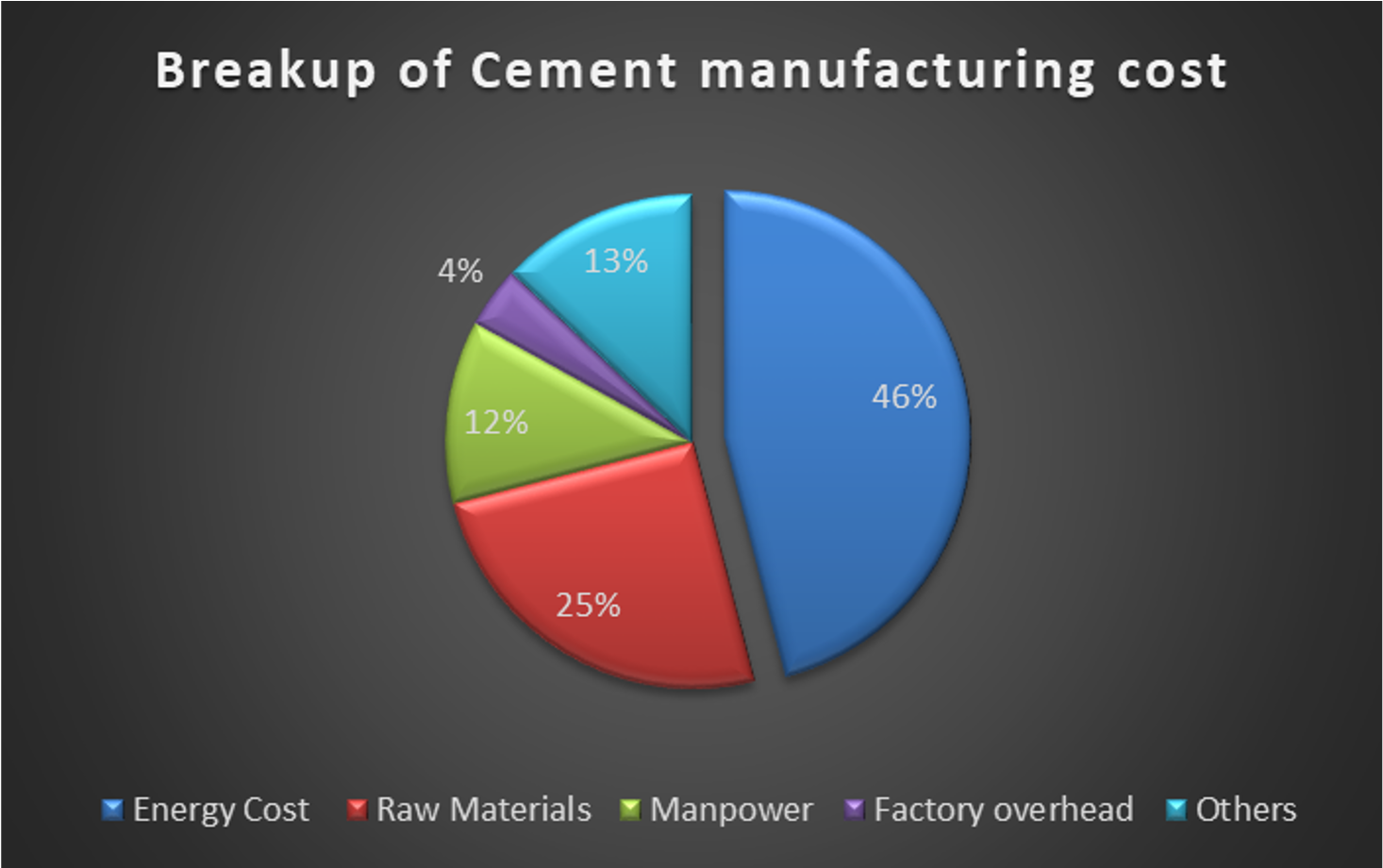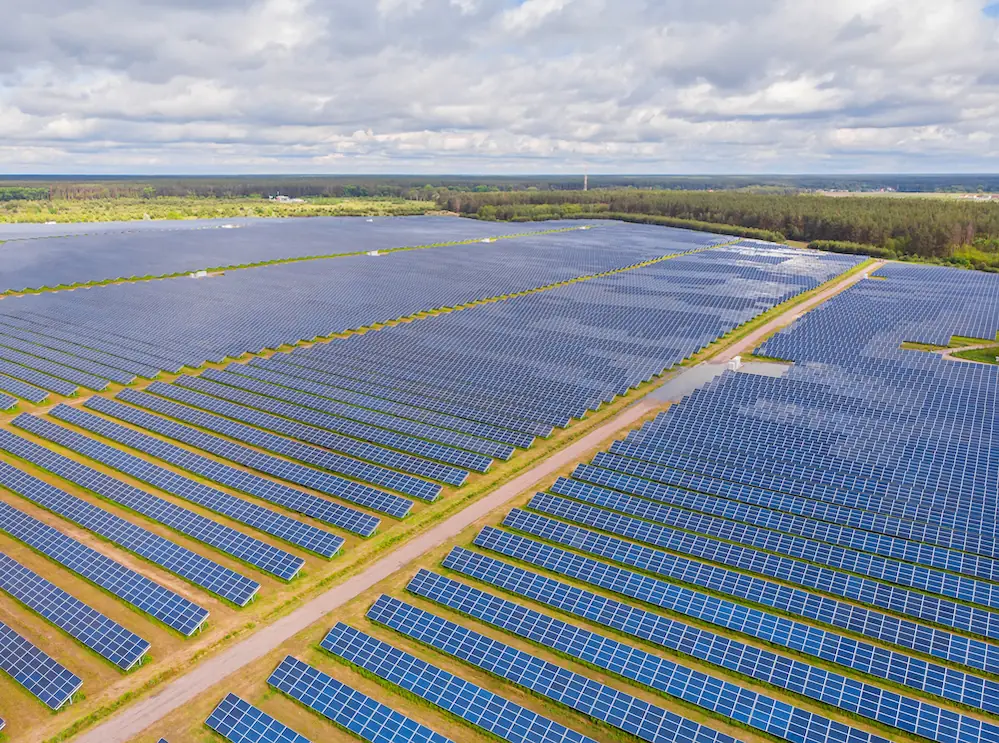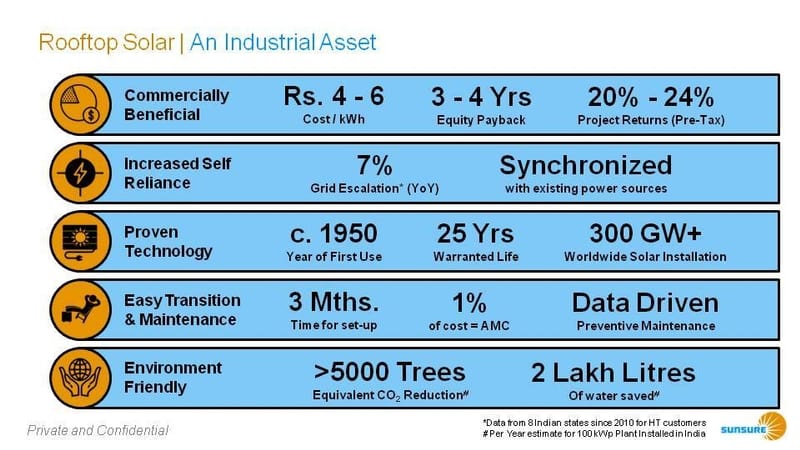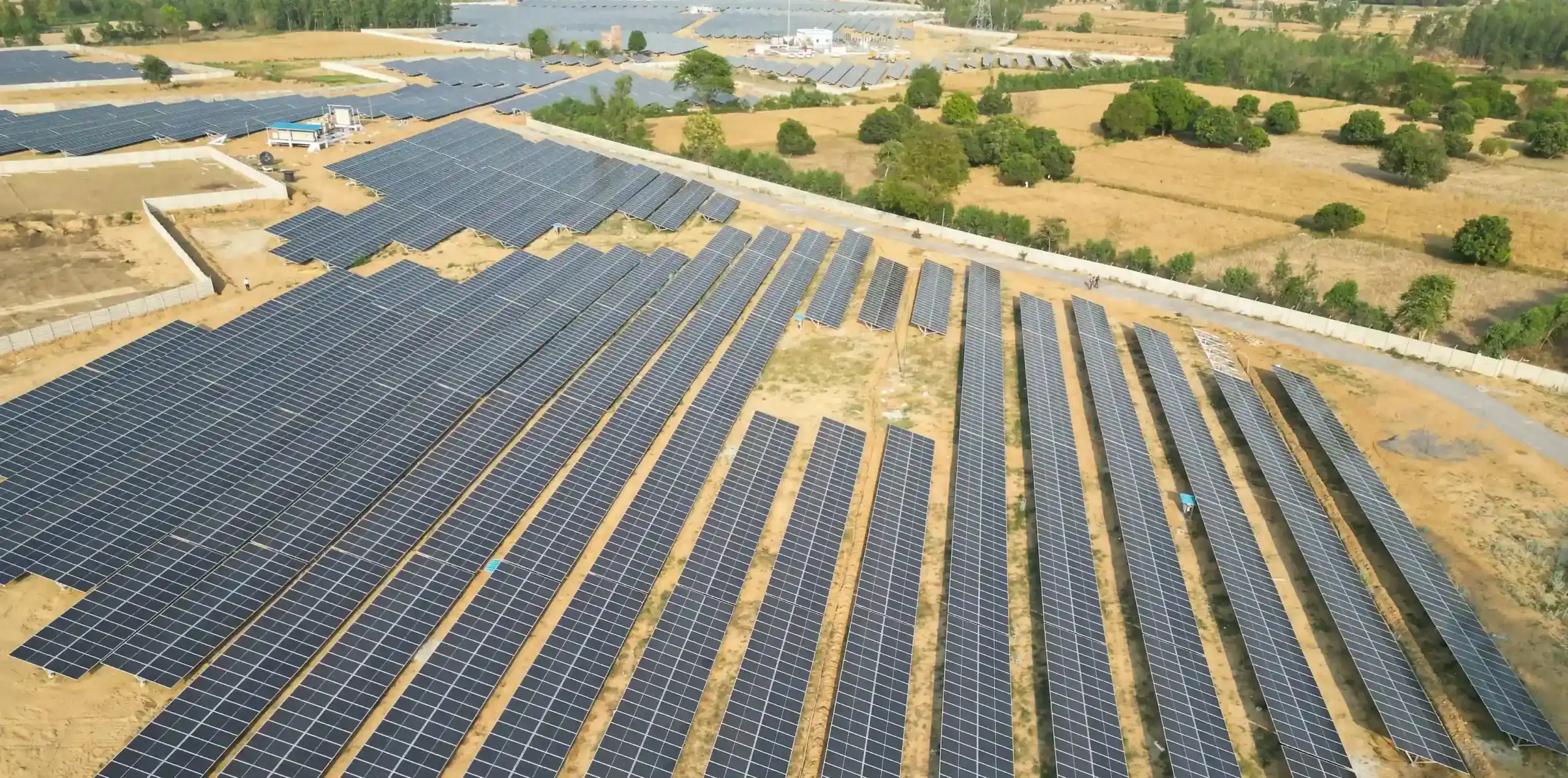Harnessing Solar Energy in Cement Manufacturing: A Sustainable Transition

Harnessing Solar Energy in Cement Manufacturing: A Sustainable Transition
Introduction
The cement industry in India has long been a key player in the country’s infrastructure development. However, with increasing environmental concerns and a growing global emphasis on sustainability, the Indian cement sector is undergoing a transformation. Companies are now actively pursuing sustainable practices to align with environmental goals and societal expectations. The integration of solar energy into cement manufacturing heralds a new era of environmental stewardship and economic efficiency. This article explores the journey of the cement sector towards a sustainable future powered by solar energy.
Energy Requirement in Cement Industry
Cement industry is an energy intensive industry and 3rd largest coal consumer in the country after power and steel industry requiring both electrical and thermal energy for its operations. These energy sources not only contribute to significant CO2 emissions but also incur substantial operational costs. Though India has reduced the Specific Energy Consumption (SEC) to ~75 kWh per ton of cement over time (SEC of older plants are still in the range of 80-100 kWh per ton of cement), the Input energy represents almost ~45% of the overall manufacturing expenses thereby making it critical for this industry to explore both cost and environmental conscious alternatives.
How Cement Industry Will Benefit From the Solar Transition?
The transition to solar energy in the cement industry offers multifaceted benefits.
- It leads to a reduction in greenhouse gas emissions, contributing to a greener planet. (The direct CO2 emission intensity in the cement industry is observed to be reduced by 5% compared to the 2010 baseline, partly due to the adoption of alternative fuels and energy-efficient practices but there is more scope of reduction).
- Economically, it offers a cost-effective alternative to traditional energy sources. (Average Discom tariff for Industries across states are in the range of ~INR 8 / kWh to ~INR 10 / kWh* and hence a very economical solar tariffs offers significant cost savings to the tune of ~30% and or even greater since Cement industry is energy intensive)
* Includes fixed charges, variable charges and Electricity duty
Government Regulations and Policies
- The Indian government’s push towards renewable energy adoption has been significant given the country is the world’s third largest producer of renewable energy, with 40% of its installed electricity capacity coming from non-fossil fuel sources.
- India’s cumulative solar open access installations serving the C&I (Commercial & Industrial) consumers are inching closer towards ~10 GW mark backed by strong state level proactive solar policies.
- The ratification of “Green energy open access” regulations by many key industrial states will further push industries to “go green” since it enables C&I consumers to purchase green power on voluntarily basis and provides certainty on open access charges.
Sunsure’s Role in Decarbonization of Cement Industry
Sunsure Energy, a leader in renewable energy solutions, is instrumental in aiding cement companies in India to achieve their RE100 goals. Utilizing innovative approaches like Round-the-Clock (RTC) Power through Open Access Solar, Green Attributes, and Virtual Power Purchase Agreements (PPAs), Sunsure tailors solutions that are both sustainable and economically viable. Among their notable clients in the cement sector is Dalmia Cement (Bharat) Ltd., a leading name in India’s industrial landscape. Sunsure’s solutions enable companies like Dalmia Cement to integrate renewable energy seamlessly, ensuring consistent energy supply and aiding in their journey towards complete renewable energy reliance.
Conclusion
The integration of solar energy in cement industry is not just an environmental imperative but also a strategic business decision. With the support of companies like Sunsure Energy, the cement industry is well on its way to achieving a greener and more sustainable future.
FAQs
What is the concept of harnessing solar energy?
- Harnessing solar energy involves capturing sunlight and converting it into electricity, offering a renewable and cleaner energy source compared to traditional fossil fuels.
How Cost-Effective is the Transition to Solar Energy in Cement Manufacturing?
- The transition is increasingly cost-effective, with solar power systems offering a viable alternative to conventional energy sources.
- The landed open access cost of solar power stands at INR ~4-7 per unit, compared to grid power tariffs for C&I units offered by Discoms which is at INR ~8-10 per unit.
What Makes Solar Energy Sustainable for Cement Manufacturing?
The cement industry is known for its energy-intensive processes and substantial carbon emissions. Integrating solar energy into cement manufacturing operations offers various benefits as below,
- Reduced Carbon Emissions (Environmental impact).
- Energy Cost Savings (Cost optimization).
- Grid Independence and Reliability (Long-term sustainability).
- Sustainable Practices and Corporate Social Responsibility (Enhances the environmental image).

Shantanu Faugaat
Co-Founder, Director & COO at Sunsure Energy
Knowledge Hub
Related insights from the industry


